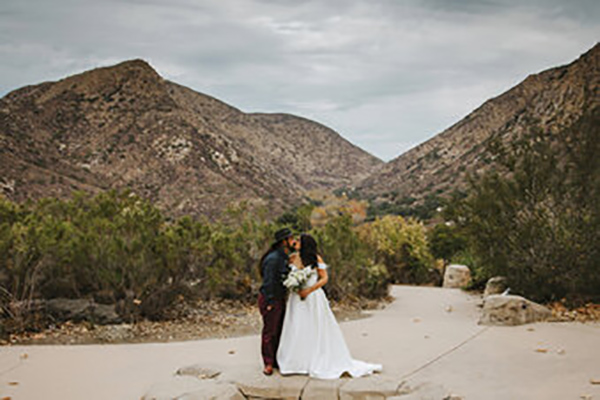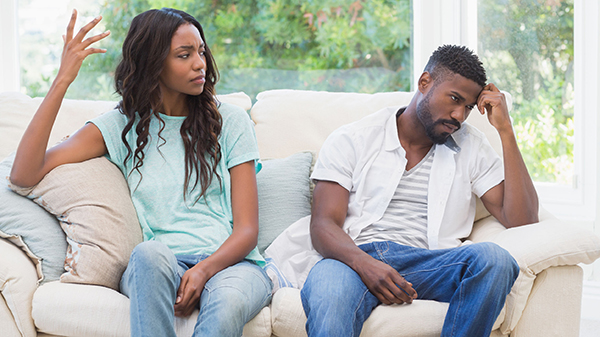On June 26 the U.S. Supreme Court ruled to legalize same-sex “marriage” in all 50 states. This landmark decision was met with both celebration and sorrow. A new Barna survey conducted in the wake of the ruling reveals nine key findings that will help make sense of where Americans stand — and what’s next in this divisive conversation.
1. Americans remain deeply divided on the issue.
While there are plenty of demographic groups that lean heavily in one direction or the other, the general population remains divided in their support of legal same-sex “marriage.” About half of the general population supports the recent Supreme Court decision (49 percent). Just over 4 in 10 Americans disagree with the decision (43 percent) and 7 percent say they don’t know how they feel about it. Americans are split as well on whether legalized same-sex “marriage” will have a positive (37 percent) or negative (40 percent) impact on society. Divisions also emerge when it comes to whether legalizing same-sex “marriage” is morally right (52 percent) or morally wrong (43 percent). And similar proportions of Americans believe same-sex “marriage” is protected by the Constitution (52 percent) or say it is unconstitutional (38 percent).
2. However, most agree that legal same-sex “marriage” was inevitable.
Americans may be divided on how they feel about the decision, but most perceived the decision to be only a matter of time. Six in 10 Americans say legalization was an inevitability (62 percent). Evangelicals remain an exception: Just 3 in 10 say same-sex “marriage” was a foregone conclusion (31 percent), half that of the general population. Interestingly a slim majority of Americans reject the idea that the same-sex “marriage” movement could accurately be compared to the Civil Rights movement of the 1960s (55 percent).
3. Practicing faith is a stronger indicator than religious identity.
Christians who qualify as “practicing” — those who say their faith is very important to their life and who have attended one or more church services during the past month — differ significantly in their stance toward same-sex “marriage” from those who self-identify as Christian but do not regularly attend church or prioritize their faith. In this instance, practicing Christians (28 percent) are far less likely than self-identified Christians (43 percent) to favor the Supreme Court ruling.
4. Evangelicals, more than any other faith segment, continue to strongly oppose same-sex “marriage.”
Beyond faith identity and practice, Barna also defines some Christian groups such as evangelicals based on their theological convictions. Nearly all theologically defined evangelicals say they are not in favor of the Court’s decision (94 percent) — more than twice the proportion among the general population (43 percent) and even significantly more than the practicing Christians segment (66 percent). Only 2 percent of evangelicals say they support the decision to legalize same-sex “marriage.” They also are much more likely to say same-sex “marriage” will have a negative impact on society (86 percent vs. 40 percent among all U.S. adults).
5. Younger practicing Christians more closely align with older practicing Christians than with others under 40.
One-third of practicing Christians under 40 favor the ruling (35 percent), compared to 6 in 10 among all adults in their age cohort (61 percent) — a gap of 26 percentage points. By comparison, there is only a nine-point gap between younger practicing Christians and those 40 and older (26 percent). On nearly every question, deep divides emerge between these two groups of younger Christians. While only one-third of practicing Christians under age 40 (35 percent) are in favor of the Supreme Court’s decision, three-quarters of nonpracticing Christians of the same age support the decision (73 percent).
6. Most people acknowledge a difference between legal same-sex unions and marriages performed by the Church.
Similarly the majority of Americans — including most religious groups — acknowledge this difference between church and state unions. More than half of Americans agree “Christians can support legal marriage for same-sex couples and also affirm the Church’s traditional definition of marriage between one man and one woman” (54 percent). Only evangelicals (24 percent) and practicing nonmainline Protestants 40 and older (41 percent) are less likely than average to agree.
7. The majority of Americans — regardless of faith or age — believe religious institutions and clergy should not be forced to perform same-sex “marriages” against their beliefs.
Only one-fifth of Americans (19 percent) say they should be required to do so. Even among those with no faith, less than one-quarter (24 percent) argue that such institutions should be required to perform same-sex “marriages.” There is a substantial minority, however, among Americans under 40 (26 percent) who believe the law should compel religious institutions and clergy members to perform same-sex weddings.
8. Americans are more divided on whether for-profit businesses should be required to provide services for same-sex weddings.
While Americans feel strongly that religious institutions should be protected against compulsion to perform same-sex weddings, they display more ambivalence toward for-profit enterprises. While a majority of U.S. adults disagrees that for-profit businesses should be legally required to provide services for a same-sex wedding, Americans under 40 (44 percent) are more likely than the general population (35 percent) to say businesses should be required to do so. Younger practicing Christians (33 percent) land between all adults (38 percent) and older practicing Christians (27 percent) on this question.
9. Older Americans and conservative faith groups are concerned about the future of religious freedom.
The majority of Americans — nearly 6 in 10 — say they are concerned that religious freedom will become more restricted in the next five years (56 percent). These concerns are heightened among older Americans: 62 percent of adults over age 40, compared to 45 percent of Americans under 40, say they are concerned about the future of religious freedom. Three-quarters of practicing Christians 40 and older (77 percent) and 9 out of 10 evangelicals (93 percent) say they are concerned that religious freedom will become more restricted in the next five years. (Barna)





Share with others: